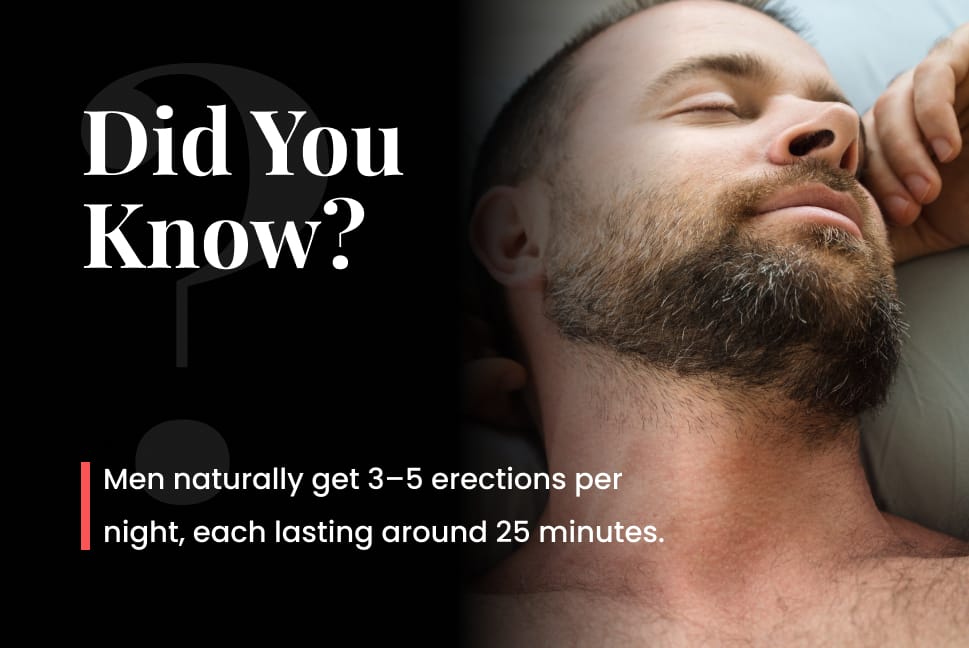This might not be the topic you expected to find on a dermatology website, but sexual health and skin health are more connected than you might think. Questions about erectile function, blood flow, and how various treatments affect sexual performance come up regularly in aesthetic practices. It’s completely natural to wonder about these things, and getting accurate information shouldn’t feel awkward or embarrassing.
So let’s dive into something that’s probably crossed your mind at some point: how long should an erection actually last? It’s one of those questions that seems straightforward but has more nuance than you’d expect. The truth is, there’s much more variation in what’s considered “normal” than most men realize.

The Real Numbers Behind Average Erection Duration
When it comes to sexual activity, the length of time an average erection lasts varies significantly depending on several factors. Research shows that during penetrative sex, the typical duration ranges from about 5.4 minutes before ejaculation occurs. But here’s what’s important to understand: this doesn’t mean your erect penis needs to maintain the same level of firmness for the entire encounter.
Think of erectile function like a dimmer switch rather than an on-off button. Throughout sexual arousal and sexual stimulation, blood flow to the area naturally fluctuates. You might notice your erection becoming firmer during periods of intense stimulation and then relaxing slightly during gentler moments. This is completely normal and actually shows that your blood vessels are responding appropriately to different levels of sexual arousal.
What Actually Determines Erection Duration?
Your body’s ability to maintain an erection depends on a complex interplay of physical and psychological factors. Blood flow is the star of the show here—when you’re sexually aroused, blood vessels in the penis dilate, allowing increased blood flow to create and maintain the erection. Because erections depend entirely on increased blood flow through the penile blood vessels, anything that affects vascular health—like high blood pressure, diabetes, or even smoking—can impact erectile function. But this process can also be influenced by everything from your stress levels to what you had for dinner.
Performance anxiety plays a bigger role than most people realize. When you’re worried about how long you’ll last or whether you’re “performing well enough,” your body can actually work against you. Stress hormones can interfere with the blood flow necessary for maintaining an erection, creating a frustrating cycle where worry leads to erection problems, which then leads to more worry.
Age is another factor, though it’s not as cut-and-dry as you might think. While it’s true that erectile function can change as you get older, plenty of men in their 60s and beyond maintain healthy sexual function. The key is understanding that changes don’t necessarily mean problems. They just mean your body might need a little more time or different types of stimulation than it did in your twenties.

Nocturnal Erections: Your Body’s Built-in Quality Check
Nocturnal erections are actually your body’s way of maintaining penile health. During REM sleep, you’ll typically experience 3-5 erections that can last around 25 minutes each. These aren’t related to sexual dreams or arousal; they’re your body’s maintenance routine, ensuring good blood flow and keeping everything in working order.
If you’re waking up with morning erections regularly, that’s actually a great sign that your vascular system is functioning well. When men stop experiencing these natural nocturnal erections, it can sometimes indicate underlying circulation issues that might be worth discussing with a healthcare provider.
When Duration Becomes a Concern
So when should you be concerned about how long your erections last? If you’re consistently unable to maintain an erection long enough for satisfying sexual activity, or if you notice significant changes in your erectile function, it might be time to explore some erectile dysfunction treatment options.
Premature ejaculation is one concern that brings many men to seek help. If you’re regularly climaxing within a minute or two of penetration and this is causing distress for you or your partner, there are definitely strategies and treatments that can help extend your staying power.
On the flip side, erections that last longer than four hours (a condition called priapism) require immediate medical attention. This isn’t the “problem” most guys think they want. It’s actually a medical emergency that can cause permanent damage if not treated promptly.
Relationship Issues and Communication
Erectile function doesn’t exist in a vacuum. Relationship dynamics, communication with your partner, and even the environment where you’re intimate all play roles in sexual satisfaction. Sometimes what feels like a physical problem is actually about connection, timing, or simply not being on the same page with your partner about expectations.
Many couples find that focusing less on duration and more on overall intimacy and pleasure leads to much more satisfying sexual experiences. When you’re not clock-watching or putting pressure on yourself to perform for a certain length of time, you might find that everything flows more naturally.

Practical Steps for Better Sexual Health
If you’re looking to optimize your erectile function, start with the basics that support healthy blood flow throughout your body. Regular cardiovascular exercise improves circulation, which directly benefits erectile function. Even a 30-minute walk most days of the week can make a meaningful difference.
Diet matters too. Foods that support heart health generally support sexual health. Think colorful vegetables, lean proteins, whole grains, and plenty of water. Limit alcohol, which can interfere with sexual arousal and blood flow, especially if you’re drinking regularly.
Managing stress through meditation, yoga, adequate sleep, or whatever relaxation techniques work for you can significantly impact erectile function. Remember, psychological issues like chronic stress or unresolved anxiety don’t just affect your mood – they have real physical effects on sexual performance.
When to Seek Professional Help
If you’re experiencing persistent erection problems, don’t suffer in silence. A healthcare provider can help determine whether there are underlying physical causes, such as circulation issues, hormonal imbalances, or medication side effects that might be contributing to the problem.
Many treatment options are available today, from lifestyle modifications to medications to specialized therapies. The key is getting an accurate assessment of what’s going on so you can choose the most appropriate approach for your situation.
Moving Forward with Confidence
Sexual health is just one component of overall wellness, but it’s an important one that deserves attention and care. There’s no single “right” answer to how long an erection should last. What matters is that you’re satisfied with your sexual experiences and feel confident in your body’s responses.
If you have concerns about erectile function or how it might relate to other health issues, don’t hesitate to reach out to a qualified healthcare provider. These conversations happen every day in medical offices, and getting the support you need is nothing to feel embarrassed about. Your sexual health matters, and you deserve to feel confident and informed about your body.

